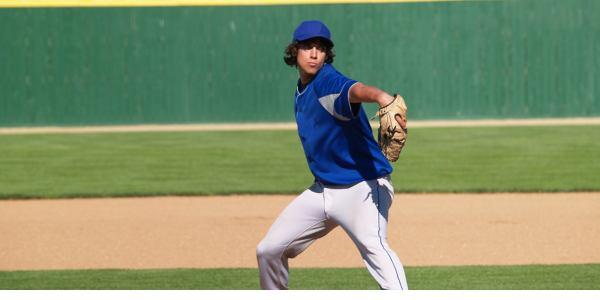Elite Athletes Aren’t Elite Just Because They Are Talented.
Plenty of talented athletes have not lived up to their potential.
Do elite athletes just have better coaching? Again, many athletes have risen to the top without the best coaching. And many talented athletes have elite coaches and still consistently under perform.
Elite athletes are peak performers because they are mentally tough and make things happen.
Elite athletes experience the same challenges as other athletes. They have slumps, make mistakes and suffer losses. In addition, elite athletes aren’t superheroes. They don’t always have their ‘A’ game.
They get tired and frustrated. Sometimes, elite athletes, like all athletes, want to skip practice.
Here are some of the strategies that athletes should focus on:
- Elite ballplayers go through stretches during which they can’t get on base. They respond by looking for an answer, taking extra time in the batting cages and working on their swing mechanics with their hitting coaches.
- Elite basketball players miss shots with the game on the line. Yet they work to manage pressure, maintain confidence and focus late in games. They file away their misses and want the ball in their hands the next game.
- Elite swimmers and track athletes miss national cuts early in the season but respond by refining their mechanics and continuing to push themselves in training sessions.
- Elite tennis players lose to lower-ranked opponents, but they learn from their mistakes and mentally reset for their next match.
In all these cases, elite athletes DO extra. They take action by working on their mental and physical games. They find a way around obstacles and keep grinding through the long season.
Young athletes, like these athletes, should know they can turn things around and take personal responsibility for their performances.
These solutions can give young athletes a sense of control over their athletic destinies and help them maximize their potential.
Elite athletes are “elite” not because they possess an inborn quality–but because they have learned a combination of mental skills and also take decisive action.
Those same mental skills are available to young athletes and can help them consistently overcome adversity to perform at their peak.
Young athletes can work on developing these mental game skills:
- High stable confidence
- Laser focus
- Emotional management
- Visualization
- Goal setting
- Performing under pressure
- Dealing with mistakes
In his first season with the New York Mets, elite pitcher Justin Verlander has been trying to find his stride. Over his 18-year career, Verlander has been one of the most consistent and dominating pitchers in the MLB, racking up 246 wins.
However, Verlander has started the season slow, with a 2-2 record, and the early-season favorite Mets are 20-23 over the first 43 games in the 2023 MLB season.
Verlander admitted to being frustrated, but he is not giving in to frustration.
“Everybody’s frustrated. We expect to be better,” he said. “I expect to be better. I think this entire organization expects to be better. There’s only one thing left to do, and that’s put your head down, work hard and find your way out of this slump.”
Like all elite athletes, Verlander is committed to taking action to turn his season around.
“But I think we’re past the point of waiting for that to happen. We need to make it happen,” he said.
Talent is important, but mental toughness and strong mental skills are necessary for peak performance, and all athletes can learn those skills.
Sports kids should focus on these skills:
- Commitment – Kids must be willing to work and dedicate time to developing their mental game.
- Planning – They need to know how they can learn mental skills and the resources available to them.
- Practice – Mere knowledge about the mental aspects of peak performance won’t improve young athletes’ game. They must work to develop their mental game and apply those skills to competitions.
Related Articles on Youth Sports:
- How Elite Teams Can Hurt Kids’ Confidence
- The Downside of Elite Teams in Youth Sports
- How the Mental Game Helps Elite Athletes and Others
*Subscribe to The Sports Psychology Podcast on iTunes
*Subscribe to The Sports Psychology Podcast on Spotify
The Composed Sports Kid

“The Composed Sports Kid” audio and workbook digital download program for young athletes and their parents or coach helps kids cope with frustration and anger in sports. Help your sports kids learn how to manage expectations and let go of mistakes so they can keep their head in the game.
The Composed Sports Kid system is really two programs in one–one program to train parents and coaches how to help their kids practice composure, and one program that teaches young athletes–ages 6 to 13–how to improve composure, let go of mistakes quickly, have more self-acceptance, and thus enjoy sports more!

